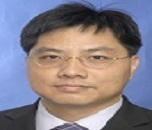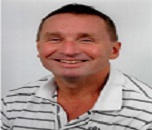Day 2 :
Keynote Forum
Wai Kwong Tang
Chinese University of Hong Kong, Hong Kong
Keynote: Vascular Factors in Post stroke Depression
Time : 09:00-09:45

Biography:
Wai Kwong Tang was a Professor in the Department of Psychiatry, the Chinese University of Hong Kong in 2011. His main research areas are Addictions and Neuropsychiatry in Stroke. He has published over 100 papers in renowned journals, and has also contributed to the peer review of 40 journals. He has secured
over 20 major competitive research grants. He has served the Editorial Boards of fi ve scientifi c journals. He was also a recipient of the Young Researcher Award in 2007, awarded by the Chinese University of Hong Kong.
Abstract:
Depression is common following an acute stroke. Post-stroke depression (PSD) has notable impacts on the function recovery and quality of life of stroke survivors. Incidence decreased across time aft er stroke, but prevalence of PSD tend to be stable. Vascular factors such as diabetes, hypertension and smoking have been related to the development of PSD. Many studies have explored the association between lesion location and the incidence of PSD. For example, lesions in frontal lobe, basal ganglia and deep white matter have been related with PSD. Furthermore, cerebral micro bleeds and functional changes in brain networks have also been implicated in the development of PSD. In this presentation, evidences of such association between the above structural and functional brain changes and PSD will be reviewed.
Keynote Forum
Erik Matser
Cornell University, Netherlands
Keynote: Post Concussion Syndrome; the silent epidemic
Time : 09:45-10:30

Biography:
Erik Matser has completed his PhD from Maastricht University (2000) and from New York (Cornell University). He is the Director of the Polikliniek Neuropsychologie, a clinic in Netherlands, focused on the treatment of post-concussion syndrome and post whiplash syndrome.He has published more than 15 papers in reputed journals and has been serving as a Member of the Dutch Health Council regarding the topic brain injury in young people.
Abstract:
Epidemiology: Concussion is a leading public health problem affecting mostly young people (peak prevalence 0-4 years and 15-24 years). The number of young people who incur concussions is enormous. The general incidence of TBI in developed countries is frequently stated to be 200 per 100,000 populations at risk per year. This estimate typically includes only patients admitted to hospitals resulting in underestimation of the frequency of mild TBI and overestimation of the proportion of more severe TBI. But looking at the number of mild TBI in sports astonishing numbers are presented in literature. Only in sports there is an estimated 1.6 to 3.8 million sport-related concussions each year in the United States. In professional soccer, 2 out of 11 players are concussed every season, the same numbers account for American football. Research showed us that out of those millions of concussions annually, 15% of the concussed people will develop post-concussion syndrome or PCS. The movie ‘concussion’ featuring Will Smith made the problem clear to the general public.
Post-concussion Syndrome: Post-concussion syndrome, or PCS, is a set of symptoms that may continue for weeks, months, or a year or more aft er a concussion. The condition is associated with a wide range of symptoms: pain sensations such as headache; energy loss and being easily fatigued after physical or cognitive exercises; cognitive impairments, such as difficulty concentrating, memory loss, slowing down of information processing, difficulties in initiating and sustaining cognitive processes (problems with ‘energizing’); and emotional changes; frustration, sadness and irritability. Why some people do and some do not develop
PCS aft er commotio cerebri has both biological and psychological causes. Studies using positron emission tomography have linked PCS to a reduction in glucose use by the brain. Changes in cerebral blood fl ow have also been observed as long as three years aft er a concussion in studies using single photon emission computed tomography (SPECT). At least one study with functional magnetic resonance imaging (fMRI) has shown diff erences in brain function during tasks involving memory after MTBI, although they did not examine PCS specifically. Additional studies have shown, using various MRI techniques (such as diff use tensor imaging (DTI) MRI), that individuals with PCS have various abnormalities in their brain structure. Similar findings have recently been reported in soldiers with blast-induced mTBI/PCS. Psychological causes for continuation of PCS complaints are psychological stressors in diff erent life domains like pending litigation, chronic stress, attachment disorders, perfectionism, anxiety and depression.
Treatment: Physicians refer about 40% for psychological consultation. A review of controlled treatment outcome studies conducted over the past 2 decades in Scandinavia, Great Britain, Canada, and the United States suggests that early single session treatment can prevent the syndrome. Treatment approaches depend on the clinician’s ability to diff erentiate among the various conditions associated with PCS. Early education (insight in complaints aft er MTBI), lifestyle information, cognitive behavioral therapy, and aerobic exercise therapy have shown effi cacy in certain patients.
